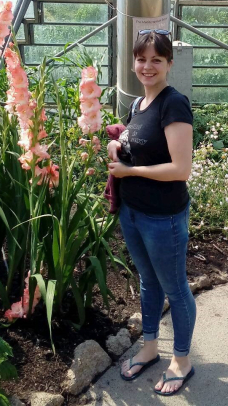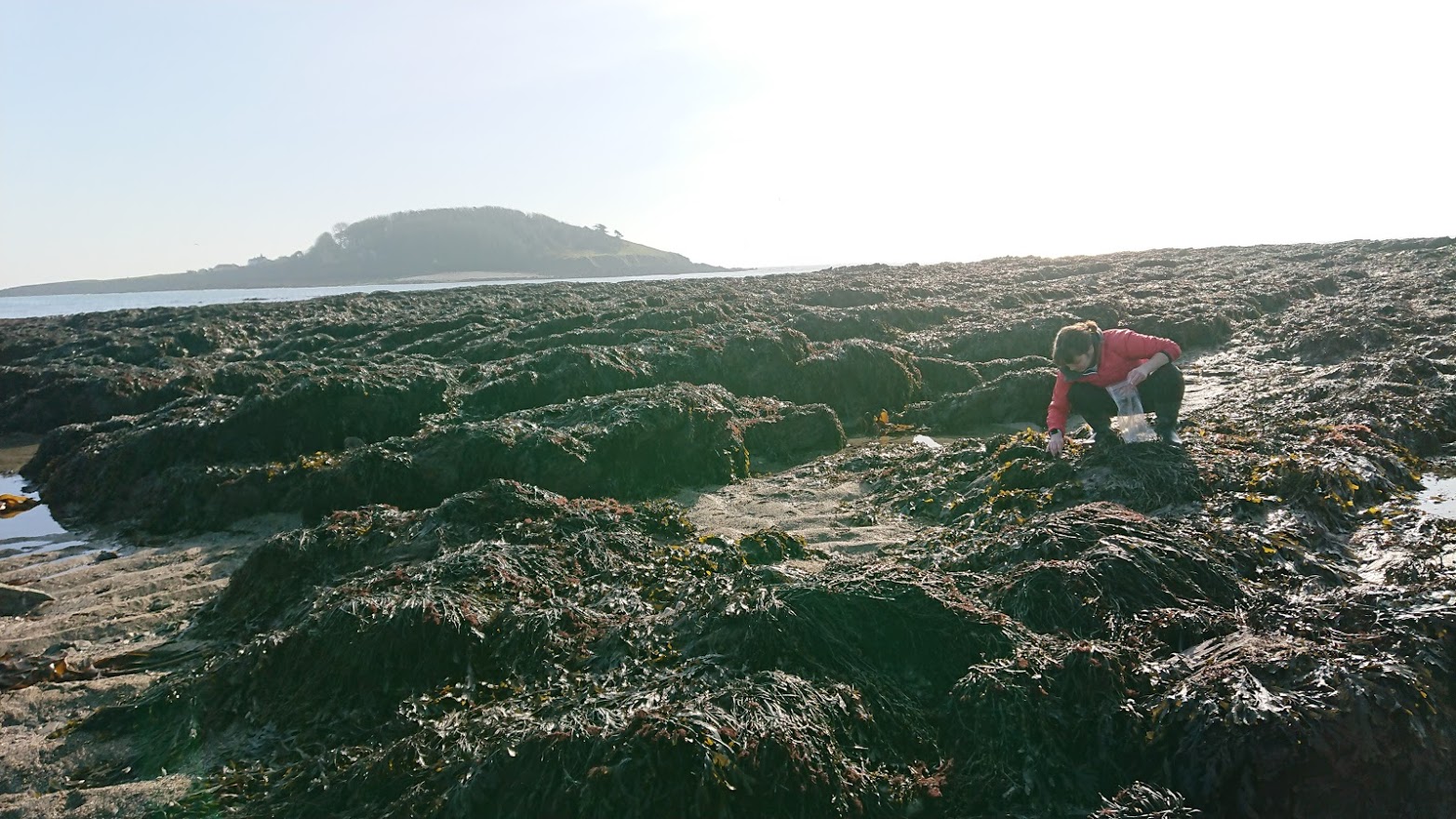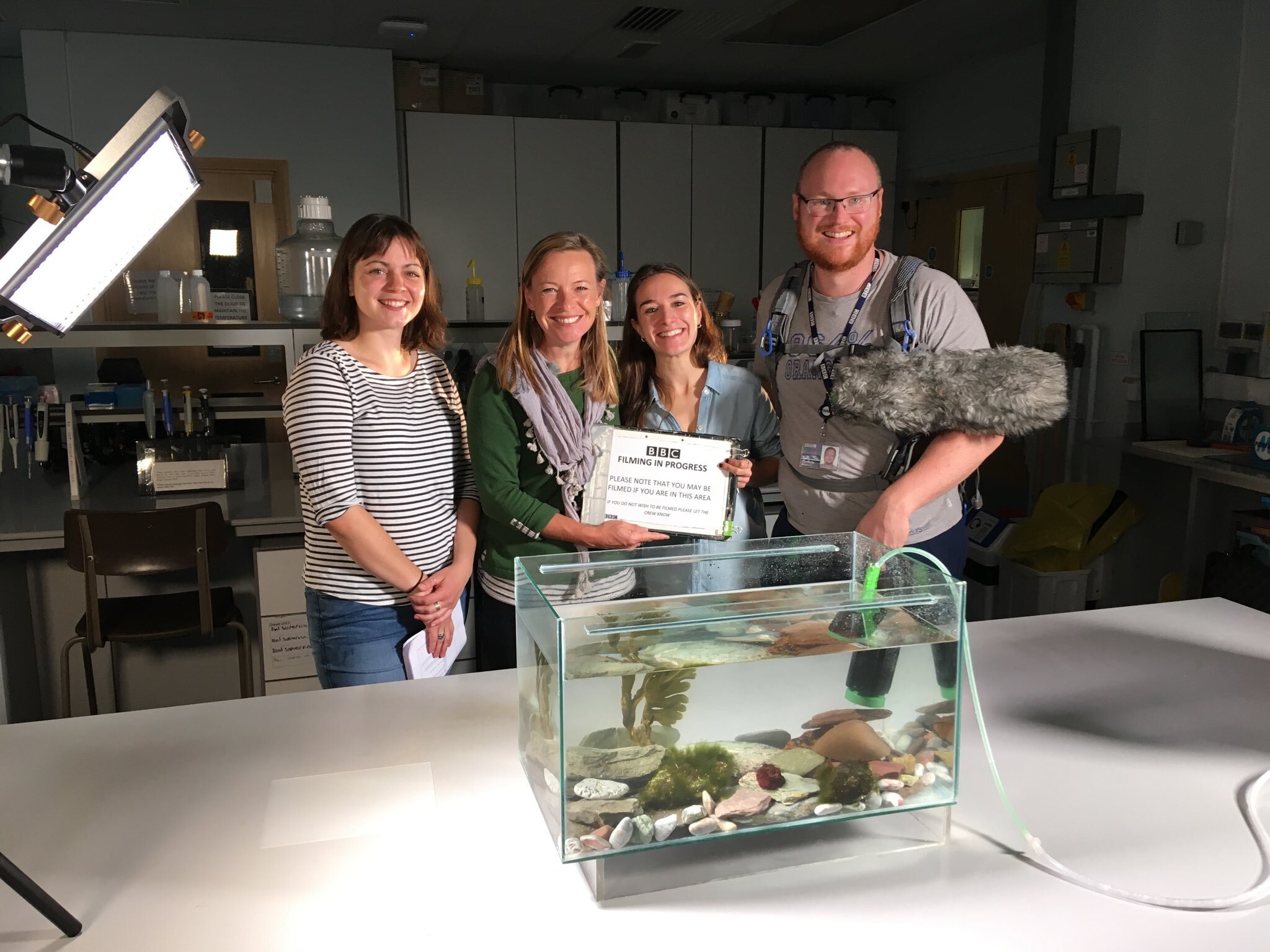We are looking back on some of our MSc graduates who have excelled in scientific research, ecology and conservation around the world since studying with us.
Today we meet Sarah who graduated from MSc Evolutionary & Behavioural Ecology in 2012. Sarah is now a Postdoctoral Research Fellow at the University of Plymouth, studying fighting behaviour in marine invertebrates.

Hello Sarah, it’s been almost a decade since you studied with us, why don’t you tell us a bit about your career in that time that led you to where you are now?
After I completed all three of my stages of higher education at the University of Exeter Penryn Campus, I applied for a post-doctoral research position with Professor Mark Briffa at the University of Plymouth where I now study the fighting behaviour of marine invertebrates including sea anemones and hermit crabs.
We are so pleased you chose to study with us for all three stages of your higher education, what attracted you to study with us originally?
When I was applying, there were very few universities offering a BSc in Zoology. When I came to the Penryn campus for an open day I was really struck by the passion of the lecturers for their subjects, and the amount of research going on within the department. That was before I even realised that I was applying to an internationally renowned centre for ecology and evolution!
What are your highlights from studying at the University of Exeter?
It depends which course you’re referring to! During my BSc I really enjoyed the range of modules available and the flexibility that existed for following your interests. I remember that one year I was the only Zoologist in a bunch of evolution modules and I loved having that freedom to choose. In terms of the MSc in Evolutionary and Behavioural Ecology I would definitely say that the amount of time you have to complete a research project is invaluable, giving you ample opportunity to not only hone your research skills but also to see if research is what you’d like to pursue.
I loved the department. As somebody interested in behaviour and evolution, the collective research interests and expertise of the academics in the CEC is second to none. During both my BSc and MSc I loved that the learning content we received was enhanced by the ground breaking research of the academics within our own department. To be surrounded by such a hub of world-renowned academics was really inspirational. Of course the scenery didn’t hurt either. Being able to utilise the natural flora and fauna of Cornwall for field courses was a fantastic way of exploring and learning more about the richness of the local environment.

We are glad you had such great opportunities, How do you think the MSc helped to prepare you for your career?
The research led by CEC academics feeds directly into their teaching and I thoroughly enjoyed having the opportunity to work with researchers at the top of their field when completing both my Honours and MSc research projects. Being able to gain experience in the lab was indispensable for me and really helped me to secure my first post-doctoral position. I would also say again that the freedom to choose between a vast array of modules during my BSc really helped me to broaden my knowledge and find what I was really interested in.
I also spent a lot of time volunteering on research projects in order to gain experience in both the lab and field. I think that combined with the research experience I gained from my BSc and MSc research projects really prepared me for my role as a Post-doctoral Research Fellow. My BSc research project led to the publication of two papers which really boosted my CV and also gave me an early opportunity to get a look at the publication process. The breadth of modules offered on my BSc and MSc gave me a broader understanding of ecology and evolution which has been critical to shaping my research questions and to adapting my skills for different research projects.
 What made you choose a career in scientific and academic research?
What made you choose a career in scientific and academic research?
Good question! If I’m totally honest, when I finished my A-levels I had no idea what I wanted to do. I was interested in such a wide range of things. However, I’d always loved biology and nature and knew that I wanted to do something intellectually stimulating. Coming to UoE and learning about behaviour and evolution had a huge impact on me. I really enjoy the pursuit of knowledge, the conversations it fosters, the creativity of designing an experiment and the anticipation of interpreting results.
Any plans for the future?
I am currently applying for independent research fellowships to gain funding in order to address the research questions that really interest me. It’s a stressful process but I’m really enjoying building collaborations with other scientists at different institutes.
Thank you Sarah!
If you want to read more profiles from MSc Evolutionary & Behavioural Ecology graduates follow this link or explore our Graduate in Focus homepage to learn more about the degree programmes we have on offer!

